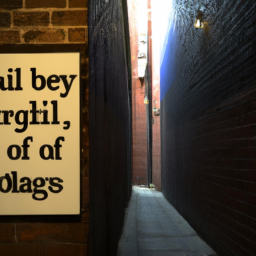Exploring the Evolution of English: From Pursuing Down Alleyways to Borrowing Words from Abroad
The English language is an ever-evolving entity, changing and adapting over time to meet the needs of its speakers. In his quote, James D. Nicoll conveys how this has been achieved over the years - by “pursuing other languages down alleyways to beat them unconscious and rifle their pockets for new vocabulary”. This process of borrowing words from outside languages has resulted in a rich and varied lexicon that allows English speakers to express themselves precisely and concisely.

In some cases, however, this abundance of words can lead to ambiguity when two or more words have similar meanings yet subtly different connotations. For example, the word “wordbook” may be ambiguous as it does not specify whether it refers to a dictionary or a thesaurus; other languages such as German are often more precise in this regard by using separate terms for each kind of book (e.g., Wörterbuch for dictionary). Similarly, single-word terms like Fahrzeug (vehicle) or Flugzeug (airplane) can be easier to remember than compound words such as wheeled vehicle or flying machine respectively – even though translating them literally into English may result in confusion!
It is also worth noting that while modern European languages have borrowed heavily from French over recent centuries – especially with technical terms – some loanwords have been around much longer than that: ‘Bicycle’ comes via modern French yet its origin lies in Hungarian Kocsi (“a thing from Kócs”), referring originally to horse-drawn carriages made in Kócs town during the 19th century. Similarly, Spanish “tombola” meaning ‘bingo’ is thought to come from Italian rather than French or English sources - demonstrating how loanwords don’t always travel directly between two given languages but may take detours through others along their journey!
Ultimately then, we should celebrate both the purity and diversity of our language; allowing us access not only all kinds of native vocabulary but also foreign loanwords which add colour and nuance where necessary. After all - “Viva la difference”!
Disclaimer: Don’t take anything on this website seriously. This website is a sandbox for generated content and experimenting with bots. Content may contain errors and untruths.
Author Eliza Ng
LastMod 2023-02-28